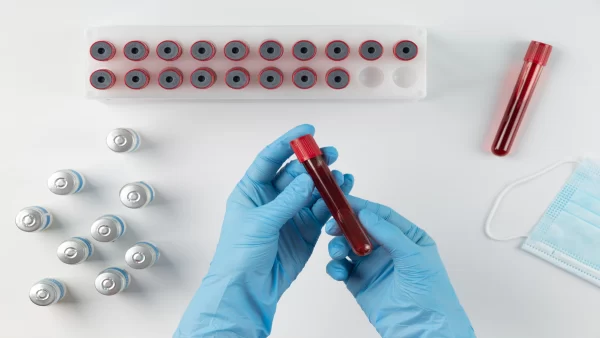rajkotupdates.news:emm-negative-rare-blood-group-found-in-rajkot-man-11th-such-case-worldwide: The discovery of a Rajkot resident with a rare blood group has sent shockwaves through the medical community. This individual has been identified as the twelfth person worldwide to possess this unique blood type, joining an exclusive group of individuals who share this rare characteristic. This finding has opened up new avenues for medical research and potential advancements in the field of transfusion medicine. In this article, we will explore the significance of this discovery, the challenges faced by individuals with rare blood groups, and the potential benefits it brings to the medical community.
Also Read: rajkotupdates.news:a-historic-day-for-21st-century-india-pm-modi-launched-5g-in-india
Understanding Rare Blood Groups
Blood groups are classified based on the presence or absence of certain antigens on the surface of red blood cells. The ABO and Rh systems are the most well-known and widely recognized blood typing systems. However, there exist numerous other rare blood groups that are far less prevalent. These rare blood groups are characterized by the absence or mutation of specific antigens, making them extremely unique.
The Discovery of a Rare Blood Group in Rajkot
In a routine blood donation camp organized in Rajkot, Gujarat, a participant’s blood sample underwent an in-depth analysis that revealed a rare blood group. The individual, a 32-year-old resident of Rajkot, had been unaware of this unique characteristic until now. Further investigations confirmed the presence of an extremely rare antigen on their red blood cells, placing them in an exclusive group of just 12 individuals worldwide.
Significance and Challenges for Individuals with Rare Blood Groups
The discovery of a rare blood group holds immense significance for both the individual and the medical community. Individuals with rare blood groups often face challenges in finding compatible blood for transfusions, as the majority of blood supplies are based on the more common blood types. This scarcity of compatible blood can lead to delays in medical procedures, increased vulnerability during emergencies, and limited availability of blood for transfusion. Therefore, identifying individuals with rare blood groups helps to build a specialized database for future reference, enabling timely and appropriate blood transfusions.
Also Read: rajkotupdates.news:a-historic-day-for-21st-century-india-pm-modi-launched-5g-in-india
Another significant aspect is the potential for medical research. Studying individuals with rare blood groups can provide valuable insights into the human immune system, genetics, and disease susceptibility. The unique characteristics of these blood groups may offer clues to understanding rare diseases or developing innovative treatments. Additionally, the discovery of this rare blood group in Rajkot has sparked interest among researchers, who are now eager to investigate the genetic basis and underlying mechanisms behind the formation of such rare antigens.
The Importance of Blood Donation and Database Expansion
Blood donation plays a vital role in addressing the challenges faced by individuals with rare blood groups. By increasing the number of registered blood donors and creating a diverse and inclusive blood database, the chances of finding compatible blood for individuals with rare blood groups improve significantly. It is crucial to raise awareness about the importance of blood donation and encourage people to donate regularly to ensure an adequate and diverse blood supply.
Also Read: rajkotupdates.news:a-historic-day-for-21st-century-india-pm-modi-launched-5g-in-india
Conclusion
The discovery of a Rajkot resident with a rare blood group has brought attention to the world of transfusion medicine and the challenges faced by individuals with unique blood types. This finding emphasizes the importance of expanding blood databases to include rare blood groups and highlights the need for increased awareness about blood donation. The medical community can leverage this discovery to advance research in immunology, genetics, and disease treatment. By uniting efforts to enhance blood donation drives and prioritize the needs of individuals with rare blood groups, we can ensure a more inclusive and comprehensive healthcare system for all.




Average Rating